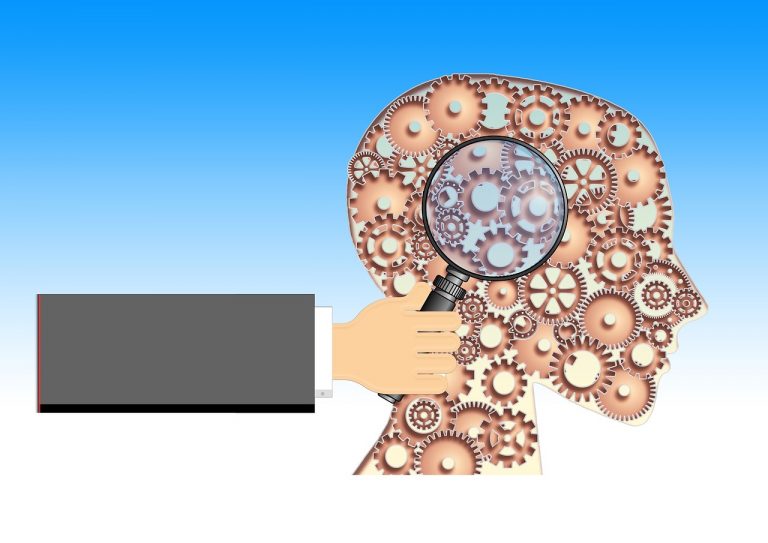The Fundamental Attribution Error
Do not judge. Assess. — Naide P. Obiang
 Last weekend, I attended the marriage ceremony of a current NFL player.
Last weekend, I attended the marriage ceremony of a current NFL player.
And let me say, it was as cool and as beautiful as you would suspect.
However, because I didn’t know him (nor his amazing wife) personally—I was the official ‘plus one’—I was in full social psychologist mode, analyzing and evaluating everyone I met.
Which included Peyton Manning… (Okay, I didn’t get to meet him, per say, but I did see him and sit in the chair he had been using when he was done with it.)
And from this experience, it gave me the perfect inspiration to discuss the psychology of attribution processes (i.e., the explanations we give to explain the behaviors of others).
THE FUNDAMENTAL ATTRIBUTION ERROR
There are few psychological phenomena so fundamental to human psychology that they literally have the word “fundamental” in their title. And a perfect example of this phenomenon came with my Lyft driver on the way to the Columbus airport.

At 4:45am, I was hustling downstairs to my Lyft driver, after making him wait a few minutes (literally, three minutes) when I couldn’t find my glasses. However, when I greeted him, he responded with a snarky: “Seems like you had the most difficult shoes to put on, huh?” When I tried to tell a self-effacing story to lighten the mood, his only response:
“Interesting.”
Then silence the rest of the ride.
Immediately, I attributed this guy’s behavior to stemming from his capital J-jerkness. In general, the fundamental attribution error is humans’ tendency to make dispositional rather than situational attributions for a person’s behavior.
For example, rather than take into consideration that it was early in the morning, that I was a few minutes late, that maybe the Lyft driver had a bad night (all situational or “external” attributions for his rudeness) I attributed it squarely to his personality (i.e., his disposition).
And it isn’t just with rude behavior that we do this. The fundamental attribution error is so fundamental that we tend to unilaterally make dispositional (vs. situational) attributions for others’ behaviors.
ATTRIBUTIONS ABOUT OURSELVES
Although we have a tendency to make dispositional attributions for others, what kinds of attributions do we likely make for ourselves?
Well, it depends on the behavior.

When the student did well, the real participant attributed the other student’s success to his/her great instructional skills. However, when the other student did poorly, they attributed the failure to the student him or herself.
This is known as the self-serving attribution bias. That is, we tend to make dispositional attributions to ourselves when we succeed (i.e., we think we’re great, when the pupil did well); however, we tend to make situational attributions for ourselves when we fail (i.e., we blame the student for being a bad learner).
At the wedding itself, when I saw myself dancing in the mirror, I attributed those herky-jerky movements to the bad music (i.e., an external attribution); however, when I saw myself dancing majestically with my girlfriend, I attributed it to my own innate rhythm (i.e., an internal attribution).
THE ATTRIBUTIONS FOR ATTRIBUTIONS
So why are we more prone to making the situational (and often more forgiving) attributions for ourselves? But when it comes to others, we’re more likely to make the dispositional ones?

For the self-serving attributions I just described, part of it relates to self-esteem: we want to attribute successes to our own character (which boosts our self-esteem) and failure to outside factors (which protects our self-esteem). However, there’s another important reason why we’re more willing to make situational attributions for ourselves and dispositional attributions for others.
When it comes to attributions about ourselves, it’s easy to be aware of all the situational factors influencing our behavior. However, when we’re evaluating others, it can be hard to “see” the situational factors at play. For example, it’s hard to know if someone recently broke up with their significant other (making them a grumpy Lyft driver) or recently twisted their ankle (making them a bad dancer). Therefore, it’s much easier and more natural to make dispositional attributions for others.
However, if we take a moment to think about the attribution we’re making and try to realize all the “invisible” factors that could be influencing another person’s behavior, we might just make the world a slightly more forgiving and tolerant place…
Dispositionally—or Is It Situationally?,
jdt
Everyday Psychology: As you may have noticed, today’s blog was a day late. In which case, did you find yourself making a dispositional or situational attribution about me for its tardiness? The answer may depend on which culture you’re from. In particular, research shows that people from more “individualist” cultures (e.g., the U.S., the U.K., Australia, etc.) are more likely to show the fundamental attribution error. However, people from more “collectivist” cultures (e.g., China, India, Taiwan, etc.) are less prone to this error. Why might this be? People from individualist cultures tend to view the self as unique and special, whereas those from collectivist cultures tend to see the self as “inherently social” and part of the group. How might these different perceptions of the self influence whether someone is more or less likely to make dispositional versus situational attributions?
Johnson, T. J., Feigenbaum, R., & Weiby, M. (1964). Some determinants and consequences of the teacher’s perception of causation. Journal of Educational Psychology, 55(5), 237.
Krull, D. S., Loy, M. H. M., Lin, J., Wang, C. F., Chen, S., & Zhao, X. (1999). The fundamental fundamental attribution error: Correspondence bias in individualist and collectivist cultures. Personality and Social Psychology Bulletin, 25(10), 1208-1219.
Ross, L. (1977). The intuitive psychologist and his shortcomings: Distortions in the attribution process. In Advances in experimental social psychology (Vol. 10, pp. 173-220). Academic Press.








Not to change the subject Jake, but here be more grist for thy mill: https://aeon.co/essays/the-evidence-in-favour-of-antidepressants-is-terribly-flawed
A very interesting read. My biggest issue with antidepressants is their inability to actually “fix” the problem as they only work on reducing symptoms (e.g., vs. something like penicillin that cures the illness). Nonetheless, they have proven beneficial as a first-step in treating illnesses like depression and anxiety; however, such success–as the article points out–don’t come without their caveats. Interestingly, there has been research into other pharmacological interventions like psilocybin and ketamine that have shown some promising results. And although I know this may be a stretch, I think you could actually connect this discussion to the current post. That is, when we point to antidepressants as not working, do we make the “dispositional” claim that the drug itself is fundamentally ineffective, or should we be making more “situational” attributions regarding the contextual factors (e.g., one’s environment, a person’s specific physiology, etc.) that could lead to their otherwise seemingly negligible effect? Thanks for sharing!